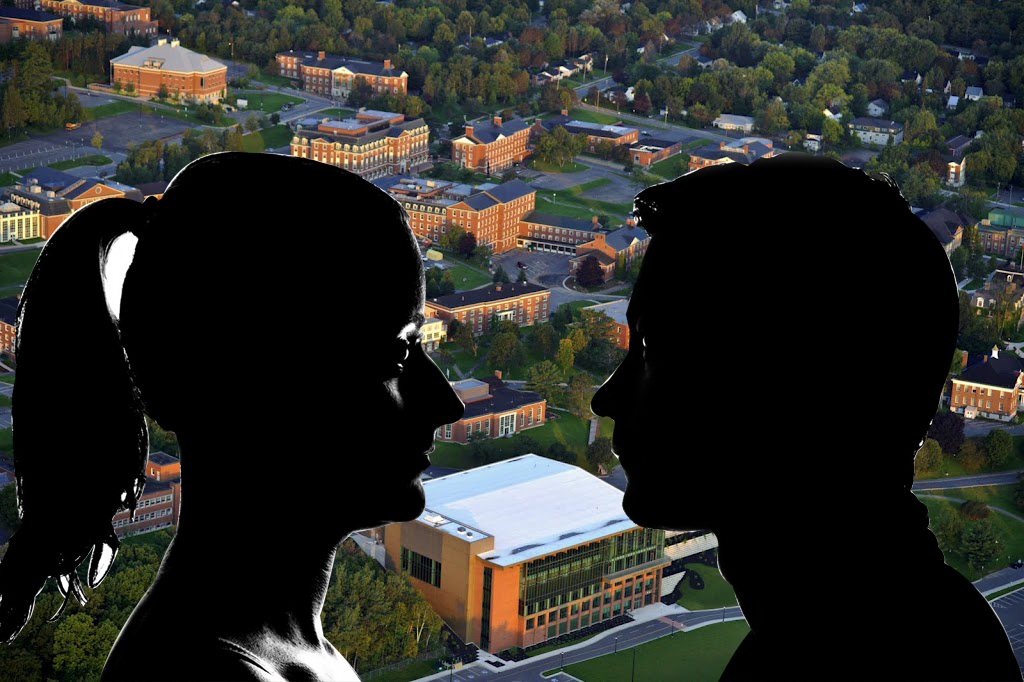

A report shows 60 sexual assaults on New Brunswick campuses were disclosed to the campus sexual assault support advocate during the 2016-17 school year.
Advocate Maggie Forsythe’s report cited incidences on St. Thomas University, University of New Brunswick Fredericton, UNB Saint John and New Brunswick Community College campuses.
Of those disclosures, 22 were affiliated with STU and 14 STU students reported assault occurred against them during the 2016-17 timeframe.
The report also says there were 38 disclosures involving either UNB Fredericton, UNB Saint John or the UNB campus in Moncton. It shows 22 took place during last year and 92 per cent of complainants attended UNB Fredericton.
Forsythe was not available for comment before the date of publication.
Brock Richardson, STU’s director of student services and residence life, said he wasn’t surprised by the numbers, but was happy to see them out in the open.
“I think that’s generally a bit more than we’ve seen in the past in terms of [the number of] disclosures and stuff,” he said.
“That meant the investment in having that advocate position [made] people feel a little more comfortable stepping forward.”
Though the report also says these numbers represent an increase in reporting compared to past years, there are no organized numbers available for comparison.
Supportive measures
UNB announced two CSASA positions in October 2016 to provide both its campuses, as well as STU and NBCC, with a place to report and receive support services.
It followed the roll out of STU’s policy on sexual violence in September 2015 and UNB’s in June 2016.
The three institutions announced in June they are making a joint investment of about $240,000 over three years as part of a tri-campus sexual assault strategy.
“The research is pretty clear that the rates of sexual violence for people of this age group are pretty consistent whether you’re on a university campus or not on a university campus,” Richardson said.
“I don’t think the rates are changing all that much right now … I would say we’re doing quite a lot but we’re still at the early stages of getting way better support in place.”
Those who disclose an assault can seek support but are not forced to take further action. Informal complaints see certain steps be taken, but do not move towards a formal process. A formal complaint would see the survivor bring charges against the perpetrator.
The report says there were nine perpetrators associated with STU and its sexual violence policy applied to them. Over half were forwarded as formal complaints to the policy on non-academic misconduct, and Richardson said four cases were completed.
At UNB, there were 28 perpetrators whose actions applied to its policy. Eighteen per cent of those incidences were forwarded to UNB’s student disciplinary team.
Ninety-six percent of perpetrators were men.
Thirty-two per cent of complainants “successfully sought out and received informal measures to create safety in their lives.”
Need for cultural shift
STU Students’ Union launched a new committee in September with the goal of engaging students to combat sexual assault and rape culture on campus.
Co-chairs Amy Baldwin and Jimy Beltran are of the same opinion: sexual assault is a major societal problem, but things like having support advocates and evidence in numbers is battling the stigma.
They said these are necessary weapons for changing that culture.
“It shows that students trust that their institutions are dealing with sexual assaults and feel comfortable reporting it,” Baldwin said.
“When reports come out that shows that schools like [the University of Toronto] has six reported assaults that doesn’t mean they have less rapes, their students just don’t see the value in reporting it.”
Beltran said the report demonstrates how valuable the CSASA position is to students.
“It also demonstrates the necessity to expand this program not only in Fredericton but across the province. These 60 disclosures are a glimpse [into] the countless [number] of other people that have been affected in our campuses and communities by sexual assault.”
Richardson said it’s that kind of interest from students that will help achieve change.
“What I like about what’s happening at STU is that administration took on a lot of the policy work … [and] the students are taking up a lot of the work on the prevention and cultural change,” he said.
“The culture has to shift, so to see students being so active and so interested and trying to push change at that level, I think that’s really awesome because that’s where a lot of the change needs to happen.”
Baldwin agreed with Beltran and said she hopes the report illustrates that sexual assault is an issue outside of campus all people need to be committed to eradicating.
“We need a cultural shift where people can discuss what consensual sex is and healthy relationships. It shows the extent of the issue in all areas of our society.”
